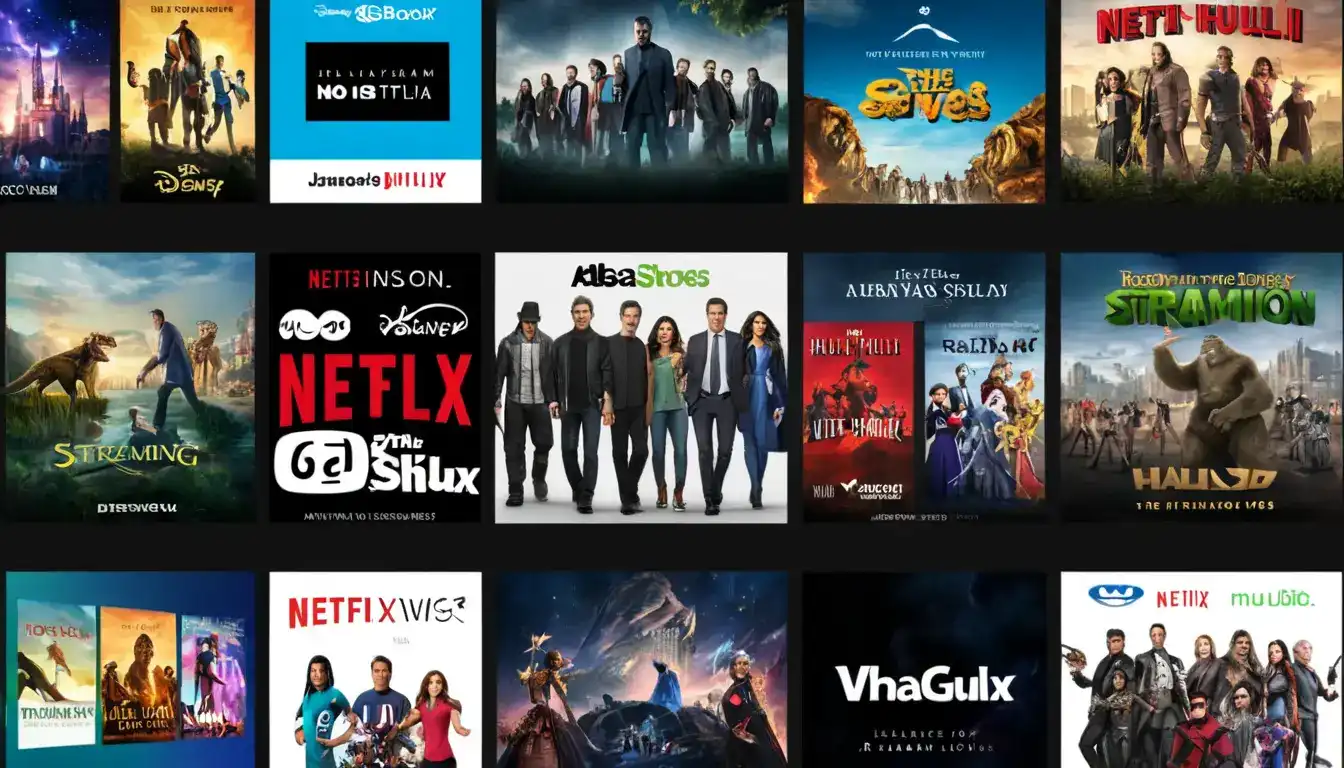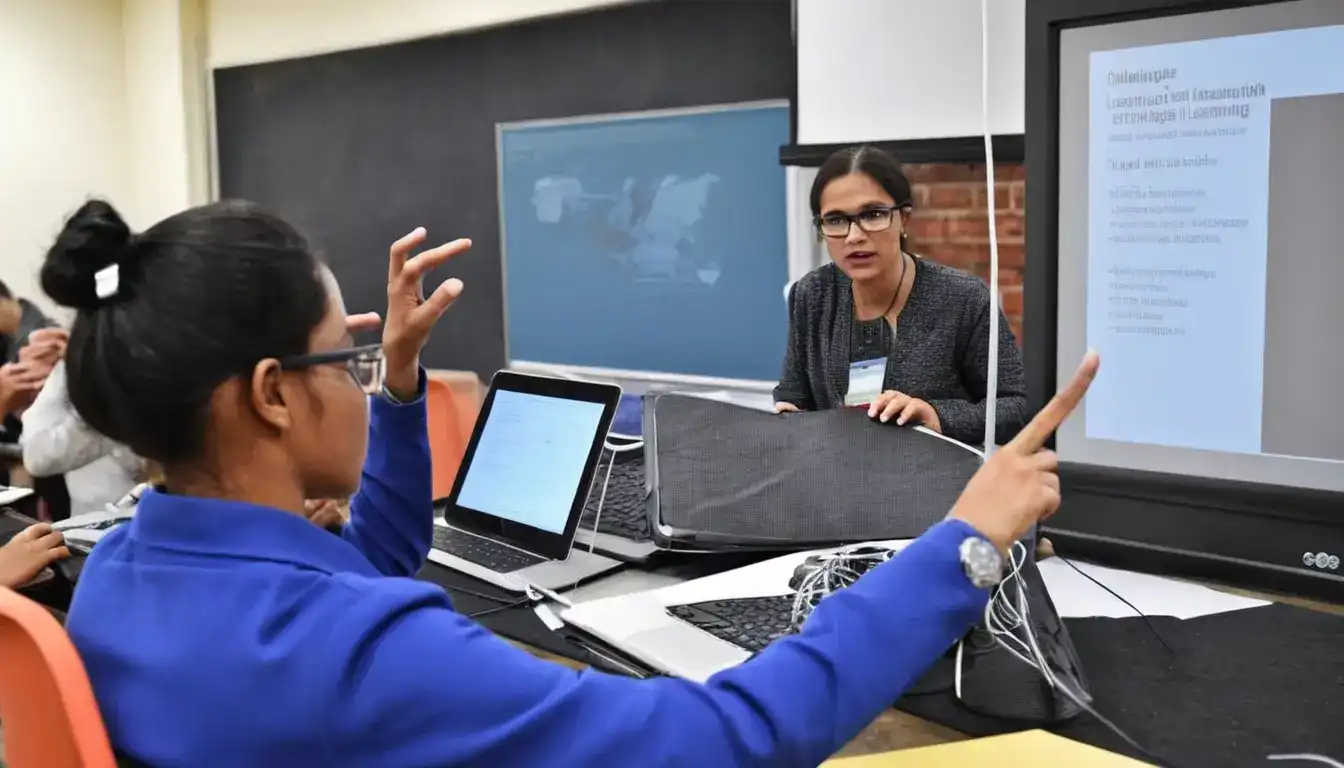Importance of Communication Skills in Education
Emily Willis

Photo: Importance of Communication Skills in Education
Communication skills are essential not only in personal and professional settings but also in education. Effective communication plays a crucial role in the learning process, academic achievement, and overall development of students. In this article, we explore why communication skills are vital in education and how they contribute to student success.
What are Communication Skills?
Communication skills encompass a range of abilities that enable individuals to convey information clearly and effectively. These skills include speaking, listening, writing, and non-verbal communication such as body language and gestures. In an educational context, strong communication skills are fundamental for both students and educators alike.
Importance of Communication Skills in Education
1. Enhanced Learning Experience
Clear communication facilitates the exchange of ideas, thoughts, and information between students and teachers. When students can effectively articulate their questions and concerns, teachers can provide targeted explanations and feedback. This interaction promotes deeper understanding and engagement with the subject matter, leading to an enhanced learning experience.
2. Academic Achievement
Students who possess strong communication skills are better equipped to express their knowledge and understanding during exams, presentations, and class discussions. They can structure their thoughts coherently, present arguments persuasively, and support their viewpoints with evidence. As a result, they often achieve higher academic success compared to peers with weaker communication abilities.
3. Critical Thinking and Problem-Solving
Effective communication is closely linked to critical thinking and problem-solving skills. When students can clearly articulate their thoughts and ideas, they are more likely to identify issues, analyze different perspectives, and propose creative solutions. Communication skills empower students to approach challenges systematically and collaborate with others to achieve common goals.
4. Preparation for the Workplace
In today's globalized and interconnected world, strong communication skills are highly valued by employers across industries. Education serves as a training ground where students can develop and refine these skills through group projects, debates, presentations, and written assignments. Students who are proficient communicators are better prepared to navigate professional environments, build relationships, and advance in their careers.
5. Building Confidence
Effective communication builds confidence in students. When they can express themselves clearly and persuasively, they feel more empowered to participate actively in class activities, share their opinions, and engage in discussions. This confidence extends beyond the classroom and into various aspects of their lives, contributing to personal growth and self-assurance.
6. Promoting Social and Emotional Development
Communication skills are not only about conveying information but also about understanding emotions, empathizing with others, and building meaningful relationships. In an educational setting, students learn to communicate respectfully, listen actively to their peers, and resolve conflicts constructively. These skills foster a supportive learning environment where students feel valued and understood.
7. Cultural Understanding and Diversity
Effective communication facilitates cross-cultural understanding and promotes appreciation for diversity. In multicultural classrooms, students learn to communicate across different languages, backgrounds, and perspectives. They gain insights into global issues, develop empathy for others' experiences, and become more inclusive in their interactions. Communication skills thus play a vital role in preparing students to thrive in a diverse and interconnected world.
Strategies to Improve Communication Skills in Education
1. Active Listening: Encourage students to listen attentively to their peers and teachers, ask clarifying questions, and summarize key points to demonstrate understanding.
2. Public Speaking: Provide opportunities for students to practice public speaking through presentations, debates, and class discussions. Offer constructive feedback to help them improve their delivery and confidence.
3. Writing Skills: Emphasize the importance of clear and concise writing. Assign writing tasks that require students to organize their thoughts logically, use appropriate language, and structure their essays or reports effectively.
4. Non-Verbal Communication: Teach students the significance of body language, facial expressions, and gestures in conveying messages. Discuss how non-verbal cues can enhance or detract from effective communication.
5. Collaborative Projects: Assign group projects that require students to communicate and collaborate effectively. Encourage them to delegate tasks, resolve conflicts, and work towards shared objectives, fostering teamwork and interpersonal skills.
Conclusion
Communication skills are indispensable in education as they facilitate learning, critical thinking, and personal development. By nurturing these skills, educators empower students to express themselves confidently, engage meaningfully with academic content, and prepare for future success in both their careers and personal lives. As technology continues to evolve and global communication becomes more interconnected, the ability to communicate effectively remains a cornerstone of academic achievement and lifelong learning. Therefore, fostering communication skills in education is not merely beneficial but essential for nurturing well-rounded individuals who can thrive in a diverse and dynamic world.
Latest ✨
View Allvibrant cultures of Mexico, China, and India, highlighting their unique customs, traditions, and ways of life. It emphasizes the importance of immersing oneself in these cultures to connect with the soul of a place and create lasting memories.
Emily Willis
Virtual reality (VR) and augmented reality (AR) are transforming the entertainment industry by offering immersive experiences that blur the lines between the real and virtual worlds. VR completely transports users into computer-generated environments, while AR overlays digital elements onto the real world.
Emily Willis
The Pacific Ocean is home to remote and enchanting islands that offer untouched natural beauty, rich cultures, and unique experiences for adventurous travelers. Tips for exploring these hidden gems include researching your destination, packing light, respecting local culture, exploring responsibly, and staying safe.
Emily Willis
concept of "sports for social good," which uses the power of sports to address social issues and create positive change. It highlights the impact of sports on diversity, gender equality, youth development, community engagement, health, and peacebuilding.
Emily Willis
Business
View All
August 5, 2024
How to Create Engaging Content and Convert Visitors to Customerscreating engaging content to attract and retain customers in the digital age. It provides strategies for understanding the audience, setting content goals, creating high-quality content, using storytelling and emotional connection, and optimizing content for conversions. It also covers content formats and distribution, measuring and analyzing content performance, and building relationships with influencers and user-generated content.
Emily Willis

August 5, 2024
How to Improve Your Leadership Skillsleadership skills in achieving organizational success. It discusses various aspects of leadership, including understanding leadership, identifying leadership styles, developing effective communication skills, building trust and credibility, developing emotional intelligence, delegating tasks effectively, embracing continuous learning, fostering a positive work culture, making tough decisions, developing a growth mindset, and building a strong team.
Emily Willis

August 5, 2024
Master Your Business Financial Plan in 5 Stepssecrets to mastering your business financial plan with five simple steps. Learn how to analyze financial data, set measurable goals, and create a comprehensive strategy for success. Unlock profitability, make confident decisions, and ensure a bright future for your business
Emily Willis
Economy
View AllBest Secured Loans for Debt Consolidation with Low Interest Rates | Compare Top Lenders & Save Money on Monthly Payments
Read MoreThe digital economy is rapidly changing the job market, with trends such as remote work, the gig economy, automation, e-commerce, cybersecurity, digital skills, and changes in traditional industries having significant implications. These trends offer both opportunities and challenges, requiring individuals and organizations to adapt by embracing flexibility, investing in continuous learning, and staying abreast of technological advancements in order to thrive in this evolving landscape.
Read MoreIn today's rapidly changing economic landscape, innovation and resilience are more important than ever. Innovation drives progress and competitiveness by creating new ideas and solutions to meet market needs. Resilience helps businesses withstand shocks and bounce back from setbacks by planning strategically and diversifying resources.
Read MoreEntertainment
View All
August 4, 2024
The Latest Music Trends, Artists Influencing Pop Culture, and How Digital Platforms Facilitate the Distribution of Music GloballyThe music industry is constantly changing due to consumer preferences, technology, and the influence of artists. Digital platforms have revolutionized music creation, distribution, and consumption, leading to genre fusion, the rise of independent artists, and collaborative projects. Influential artists like Billie Eilish, BTS, and Taylor Swift have shaped pop culture globally. Streaming services, social media, and direct-to-fan engagement have transformed music distribution. Digital platforms also promote cultural diversity and inclusivity, expand markets and revenue, and drive technological advancements. The industry is also focusing on sustainability and ethical practices. To succeed in the future, stakeholders must embrace digital transformation and champion inclusivity.
Emily Willis

August 5, 2024
Video Games: Enduring Appeal, Immersive Worlds, and Diverse Genresenduring appeal of video games, highlighting their ability to transport players to fantastical realms, challenge their minds, and foster connections with others. It explores the magic of immersive worlds, the vast array of genres available, and the social power of gaming.
Emily Willis

August 5, 2024
Music Universal Language: Connecting and Inspiring Across CulturesMusic has the power to transcend language barriers and connect people on a deep emotional level. It serves as a bridge between cultures, fostering understanding and appreciation for diversity. The universality of rhythm and melody creates a sense of unity, while the diversity of musical styles allows for exploration and creativity.
Emily Willis
Health
View AllRegular exercise is essential for maintaining both physical and mental health. It helps with weight management, cardiovascular health, muscle strength, energy levels, and sleep quality. Exercise also reduces stress and anxiety, improves mood, cognitive function, and self-esteem, and lowers the risk of depression. Different types of exercises, such as aerobic, strength training, flexibility, balance, and mind-body exercises, contribute to overall health. To start and maintain an exercise routine, it is important to start slowly, set realistic goals, find enjoyable activities, stay consistent, and listen to your body.
Emily Willis
Regular physical activity is crucial for maintaining long-term health and well-being. It has numerous benefits, including improving cardiovascular health, aiding in weight management, enhancing mental health, strengthening bones, boosting immune function, and promoting longevity.
Emily Willis
Quality sleep is essential for overall health and well-being, impacting physical, cognitive and emotional functioning. Lack of quality sleep can lead to a variety of health issues, including weakened immune function, heart problems, weight gain and cognitive impairment.
Emily Willis
Trending 🔥
View All
1
3
4
5
6
7
8
9
10
Lifestyle
View AllTechnology
View All
August 5, 2024
Top Unity Software Development Trends to Watch in 2024
Explore the top Unity software development trends that will shape the gaming industry in 2024. From AI integration to VR/AR immersion, cross-platform reach, cloud collaboration, and mobile gaming, Unity is revolutionizing gaming experiences. Stay ahead in the dynamic world of game development with these insights.

August 5, 2024
Top 10 Steam Games of 2024
Discover the 10 best Steam games of 2024 and embark on an unforgettable adventure. From breathtaking open-world epics to thrilling FPS battles, these must-play games will keep you entertained for hours. Get ready to dive into the exciting world of Steam gaming and discover your next favorite game!

August 5, 2024
Application of IoT in Various Industries
The Internet of Things (IoT) has revolutionized various industries by enabling real-time data collection, analysis, and automation. In manufacturing, IoT has led to smart factories, predictive maintenance, and supply chain optimization. In healthcare, IoT has facilitated remote patient monitoring, smart hospitals, and enhanced patient care.

August 5, 2024
Oculus Quest 2 vs HTC Vive Pro – Which Should You Choose?
Oculus Quest 2 vs HTC Vive Pro – which VR headset reigns supreme? Dive into this ultimate showdown to discover the strengths and weaknesses of each, and decide which one is worth your investment. From specs and comfort to content and price, we'll help you make an informed choice.





















